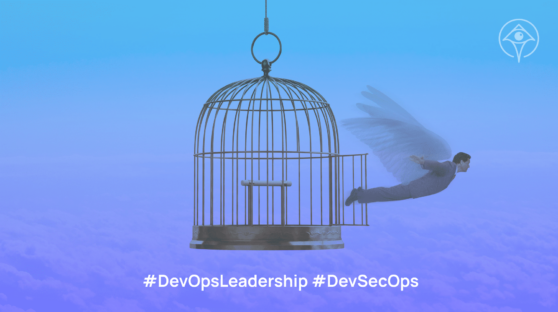Should Anybody Have Access to Production?

Ofir Stein
September 14, 2023

Table of Contents
In a perfect world, no one would have access to production, as that’s the safest way to make sure there won’t be any issues, however this remains unattainable for most companies.
On the one hand, providing developers access to production servers can be risky. If they make changes to the code or configuration, it could break things for everyone else. Also, having too many people with access to production servers can make it more difficult to track what changes have been made and when.
On the other hand, developers need access to production servers to be able to debug issues that may arise. They also need to be able to deploy code changes and monitor their performance in production. Without any type of access to production servers, many developers would not be able to effectively do their job.
While it’s advisable not to grant access to production environments, often, there is simply no way around it, and access has to be granted. Therefore, you need to ensure that the risks of exposure are as low as possible.

10 Risks of Accessing Production Data
Increasing the number of people who have production access increases the likelihood of the risks typically associated with higher-privileged access. The most common risks are operational impairments due to misconfiguration (e.g., a malformed production change causes the system to become unavailable to its customers), security breaches due to negligent actions, or confidential information leaks due to mishandling datasets.
- Accidental Outages. Developers may inadvertently make changes or updates that disrupt production services, leading to downtime or reduced system performance. This can occur due to coding errors, misconfigurations, or incorrect deployment procedures.
- Data Loss or Corruption. Inexperienced or improperly trained developers may accidentally delete or modify critical data, leading to data loss or data corruption in the production environment.
- Security Vulnerabilities. Developers accessing production systems may introduce security vulnerabilities, especially if they have excessive or unnecessary privileges. They may inadvertently expose sensitive data or create security holes during development or troubleshooting.
- Unauthorized Access. Developers with access to production environments could misuse their privileges, intentionally or unintentionally. This misuse might involve unauthorized data access or changes, potentially leading to data breaches or other security incidents.
- Limited Accountability. In shared or poorly controlled environments, it can be challenging to attribute specific actions to individual developers, making it difficult to identify the source of problems or security breaches.
- Operational Disruptions. Frequent access by developers can disrupt the operational flow of the production environment. While developers are troubleshooting or testing, the system might be less stable or responsive.
- Uncontrolled Changes. Developers might make changes in the production environment without adhering to proper change control procedures. This can lead to undocumented changes, making it difficult to track and manage the system effectively.
- Exposure to Sensitive Data. Developers may encounter sensitive data in production environments, such as personal information or financial data. Mishandling or accidental exposure of this data can result in legal and compliance issues.
- Resource Constraints. Developers accessing production systems for troubleshooting or experimentation can consume resources and potentially affect the performance of the environment for end users.
- Lack of Separation of Duties. In some cases, developers may have both development and production access, which can lead to a lack of separation of duties and potential conflicts of interest.
10 Benefits of Accessing Production Data
Allowing developers access to production environments, when done responsibly and with proper controls in place, can bring several benefits to an organization. Here are some of the advantages of letting developers access production environments:
- Faster Issue Resolution. Developers can troubleshoot and diagnose issues in the production environment more effectively when they have direct access. This can lead to quicker resolutions and reduced downtime.
- Improved Software Quality. Access to production allows developers to gain firsthand insights into how their code behaves in a real-world environment. They can identify and address issues related to performance, scalability, and compatibility more effectively.
- Enhanced Collaboration. Developers can collaborate more efficiently with operations and system administrators to optimize the production environment. This cross-functional collaboration can lead to improved system performance and stability.
- Rapid Deployment and Updates. Developers can deploy new features and updates directly to the production environment, reducing the time between development and deployment. This agility is essential in fast-paced development cycles, such as those in DevOps environments.
- Effective Monitoring. Developers can set up and configure monitoring tools and alerts in the production environment, enabling proactive issue detection and response. This contributes to higher system availability and reliability.
- Knowledge Transfer. Developers who are familiar with the production environment can transfer their expertise to other team members, improving overall team capability and reducing reliance on a select few experts.
- Continuous Improvement. Developers can gather feedback and real-world data from the production environment, enabling continuous improvement of applications and services. This iterative process can lead to better user experiences and business outcomes.
- Cost Savings. By empowering developers to handle routine operational tasks and troubleshoot issues, organizations can reduce the need for dedicated operations teams or external support, resulting in cost savings.
- Agile Development. Developers can perform A/B testing, feature toggling, and other agile development practices more easily in the production environment, facilitating rapid experimentation and feature rollout.
- Faster Feedback Loops. Developers can receive immediate feedback on their code changes and their impact on the production environment. This tight feedback loop helps identify issues early in the development process.
Giving devs a least-privileged role is how they are typically given access to the production environment. While this is a solid approach, many times developers only need to briefly access a production database system and run a few ad-hoc queries to troubleshoot the current bug. For large organizations, administering access is a full-time job. In an agile world, people move teams and switch to different projects seemingly on an hourly basis. This can lead to a lot of churn in access management to your backend database systems.
A better approach for handling access to database systems would be to allow your application developers to provision their own access and have it revoked with no extra work on your end. With the right data access controls in place (read-only access), a dev could grant themselves temporary access to certain resources to debug issues that will be automatically deprovisioned for whenever you choose.
Apono Enables Simple and Secure Access to Production
With Apono, you can have all the benefits of accessing production data without any of the risks. When an engineer requires access to fix or investigate a production issue, for example, they can get access automatically through the Data Portal, with built-in security policies enabling them to access only the types of data required, and have that access revoked when it’s no longer needed.




